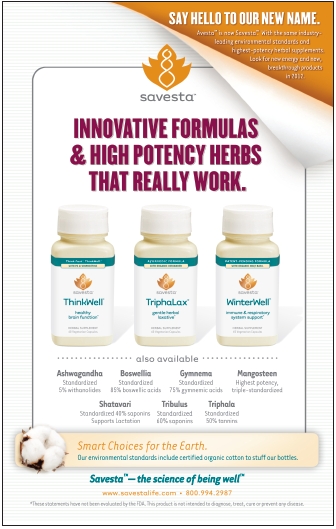Editor’s Note: This article is intended for information purposes only. Because state and municipal laws vary greatly, as do the circumstances of individual cases, readers are advised to contact an attorney for specific legal advice. © Scott C. Tips 2012
The decision of the U.S. Food and Drug Administration (FDA) has not been officially announced as of this column’s writing, but Senate staff confirms that, on June 19th, Senators Tom Harkin and Orrin Hatch were informed in a personal meeting with FDA Commissioner Margaret Hamburg and Deputy Commissioner Mike Taylor that a revision of the FDA’s Draft Guidance for Industry: Dietary Supplements: New Dietary Ingredient Notifications and Related Issues may be attempted in the future.
That Draft Guidance, as you will recall, would require, among other things, all dietary ingredients introduced into the marketplace from and since October 15, 1994, to undergo drug-like safety testing prior to marketing. The tests could cost millions of dollars per each new ingredient, and that includes each variation on that ingredient too. These requirements would not make supplements any safer than they are today and would require supplement makers to lay aside 20 years of profits to conduct the tests. To make matters worse, tens of thousands of workers could lose their jobs as the supplement industry would be forced to remove products from store shelves.
Unfortunately, in its own haste to seek clarity on new dietary ingredients, the industry itself created this Frankenstein monster of a Guidance when some lobbied for inclusion in the FDA Food Safety Modernization Act of 2011 (FSMA) of a clause directing the FDA to issue a Guidance by July 2011. As is often said, “Be careful of what you ask for. You might just get it.” In this case, we all did, good and hard.
Victory Has 100 Fathers
So, when the news started to spread that the FDA might actually back down from its published Draft Guidance, the industry and consumers were, of course, jubilant. A breakthrough in the
Industry–FDA fight over this Guidance, it appeared, had at long last emerged. One can especially imagine that the morons responsible for the inclusion of the FSMA clause were especially jubilant, and relieved.
“There’s an old saying that victory has 100 fathers and defeat is an orphan.” These words spoken by John F. Kennedy, and others before him, resonate in this situation. Some trade organizations and two health-freedom organizations immediately sent out news releases jubilantly trumpeting “their” victory, while also effusively applauding the FDA for its willingness to revise the Guidance document. So many claimed the credit, in fact, it was hard for me to tell who was truly responsible for this victory.
If this is a breakthrough, then all concerned in having made it happen deserve our heartfelt thanks. On the other hand, so far, all we have are words from the FDA, hardly the most trustworthy of agencies. After all, wasn’t the FDA the same agency that had originally promised it would not enforce the Draft Guidance until it became final only to see it then send out 10 enforcement letters complaining about purported new dietary ingredients?
The Applause Is Premature
One industry association is proclaiming that, “This action by the FDA shows that they are committed to an open dialogue” and that the FDA will be releasing a revised draft guidance that “the agency hopes will provide greater clarity and address concerns that the document is not in line with the intent of the DSHEA statute.” So, let me ask, where has the FDA dialogue been for the past 17 years on issuing a Guidance? Why weren’t supplement stakeholders, industry and consumers consulted in the first place before the Draft Guidance was issued? Does the FDA really deserve praise for simply doing what it should have done all along?
 I would not applaud the FDA for doing what it would be expected to do. It is of course tempting to do so, but why didn’t the FDA act sooner? It is like applauding a teenager for finally being toilet trained after 17 years.
I would not applaud the FDA for doing what it would be expected to do. It is of course tempting to do so, but why didn’t the FDA act sooner? It is like applauding a teenager for finally being toilet trained after 17 years.
In fact, the FDA has taken no action yet; these are mere words. Until it acts, and acts in a positive manner, some consumer-action organizations, like the National Health Federation and others, are withholding their applause. It is far too early to announce “victory.”
This is No Time to Beg for Crumbs
With the backlash the FDA received from consumers, manufacturers, health stores and supplement manufacturers after its incredibly ill-conceived Draft Guidance came out, the demands for revision were immediate. The FDA, however, ignored those pleas for almost a year. At best, the Agency sent mid-level functionaries to meet with Senators Hatch and Harkin, in what was almost certainly a calculated insult and, if not, then a bad miscalculation of its importance.
This latest development sets the stage for the continuation of regulatory misinterpretation, confusion and misguided enforcement by the FDA on this issue. In short, the FDA has yet to be either humbled by the judiciary or sent a clear directive by Congress. There is nothing in the last 17 years of FDA conduct or in the FDA’s recent informal announcement that provides us with even the least hint that it will act in good faith.
Yet, the regal FDA has thrown us a crumb and industry cheers. In my legal opinion, those cheers will poorly position us for bargaining with the FDA. Look at it through the eyes of the FDA: It ignores our views for 17 years and then when it just utters in passing that it will revise an abominable document that it should have never, ever created, the industry goes all mushy and gushy on the FDA. Who could blame the FDA for thinking we are easy marks?
Keep the Pressure On
All of this explains why the National Health Federation came out with legislation last fall, so that consumers and industry would not have to supplicate the FDA for mercy. H.R. 3380, the Dietary Supplement Protection Act (DSPA) introduced by Rep. Dan Burton (R-IN), is intended to thwart for the time being the FDA’s attack on new dietary ingredients. It does this by moving the defining date of October 15, 1994 (separating “old” supplements from “new” ones), to a more realistic and recent date of January 1, 2007.
By this one simple act, the Bill encompasses within that previous grandfathering clause all of the “new” dietary-supplement ingredients that have appeared in that 13-year interval and that would otherwise be subject to the onerous requirements of the Guidance. The bill drastically narrows the arbitrary power the FDA wants to exercise over new supplements and thereby protects thousands of supplements that have been safely consumed from being removed from the marketplace.
Maintaining pressure on the FDA through H.R. 3380 is what is needed now as the FDA finally decides that it will talk with industry and consumers about its Guidance. Just hoping that negotiations with the FDA will produce tangible results is foolish. Even attorney Jonathan Emord has acknowledged that “substantial changes are rare” on the part of the FDA. Pressure must be kept on the FDA.
The Long-Term Answer?
In a well-written article entitled, “Does the NDI Draft Guidance Significantly Impact the Safety of Supplements?” (www.fdli.org), Cara Welch, Ph.D., and Liz Hurst of the NPA quite correctly pinpoint the many ways in which the FDA’s Guidance has strayed from the intent of DSHEA. Unfortunately, though, one solution suggested by the authors is to increase funding for the FDA.
With a budget pegged at $2.5 billion ($4.5 billion if user fees are included), the FDA is a badly bloated agency that does not need even another dime when it cannot properly allocate and use those resources it has already been given. No, the FDA needs less funding, not more. With its major fat trimmed, coupled with wiser and more-core-mission-focused leadership, the Agency might just rediscover its pro-consumer roots.
In the meantime—until such a mystical moment arrives—we must remember Felix Frankfurter’s advice. Written nearly 70 years ago while a Justice of the U.S. Supreme Court, he noted, “the history of liberty has largely been the history of observance of procedural safeguards.” The FDA has shown itself all too often to be a rogue agency that refuses to adhere to procedural safeguards. It must be reined in, through clear laws binding it down.
Sadly, the industry still ignores H.R. 3380 and other legislative solutions, focusing instead on adjusting the hem of the skirt they have been given to wear. Isn’t it time to take off that skirt? WF
A graduate of the University of California at Berkeley Law School, Scott C. Tips currently practices internationally, emphasizing Food-and-Drug law, business law and business litigation, trade practice, and international corporate formation and management. He has been involved in the nutrition field for more than three decades and may be reached at (415) 244-1813 or by e-mail at scott@rivieramail.com.
Published in WholeFoods Magazine, August 2012










